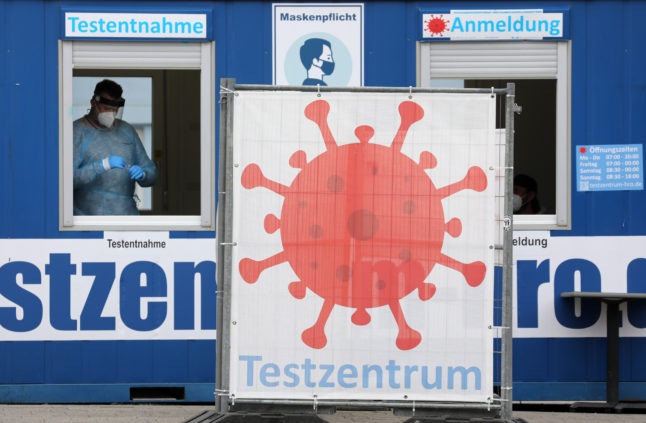Vulnerable groups, however, will still be able to get the tests, known as Bürgertests, free of charge under the plans.
Health Minister Karl Lauterbach said: “I will make no secret of the fact that I would have liked to have continued the free citizenship tests for all.”
However, Lauterbach said the taxpayer-funded testing strategy is costing an average of a billion euros per month.
“The truth is – unfortunately, we can’t afford that in the tight budget situation that awaits us in autumn,” he said.
€3 contribution from July
The new testing regulations are to apply from the start of July.
The concept foresees expenditures of €2.7 billion by the end of the year. If the government had continued to offer free tests for all, the costs would have been around €5 billion.
The federal government also plans to reduce the amount that is given to the test centres per test – from the current €11.50 to €9.50.
In future, free rapid tests will continue to be available for vulnerable groups, including children up to five years of age, women at the beginning of pregnancy, and visitors to clinics and nursing homes.
The states will have the option of taking over the co-payment of €3 for other groups as well.
Lauterbach had previously spoken out in favour of continuing to provide free Covid tests for people with symptoms who suspect they have Covid, as well as before large events.
READ ALSO: Germany to scrap free Covid tests for all
“Bürgertests should in future continue to be used specifically where they bring the greatest benefit,” said Lauterbach after the health ministers’ conference.
Lauterbach said he negotiated with Federal Finance Minister Christian Lindner to come up with the new testing system.
“The use of taxpayers’ money will become more effective, as not everything can be paid by the federal government in the long run, because our possibilities have reached their limits,” said Lindner.
Sommerwellen laufen an. Bürgertests wird es daher auch ab 1.7 weiter geben. Leider wird im Herbst der Steuerhaushalt immer knapper. Daher müssen wir Eigenbeteiligung von 3 € einführen. Kostenlos wäre mir auch viel lieber. Aber viele andere Länder haben die Tests gar nicht mehr https://t.co/JZ2B8L3RMK
— Prof. Karl Lauterbach (@Karl_Lauterbach) June 24, 2022
Autumn Covid wave
Lauterbach also warned of a severe Covid wave in autumn.
“A very difficult time lies ahead,” the Health Minister said. He said the health ministers across Germany would take a joint approach to tackling the pandemic.
READ ALSO: German Health Ministry lays out autumn Covid plan



 Please whitelist us to continue reading.
Please whitelist us to continue reading.
Member comments